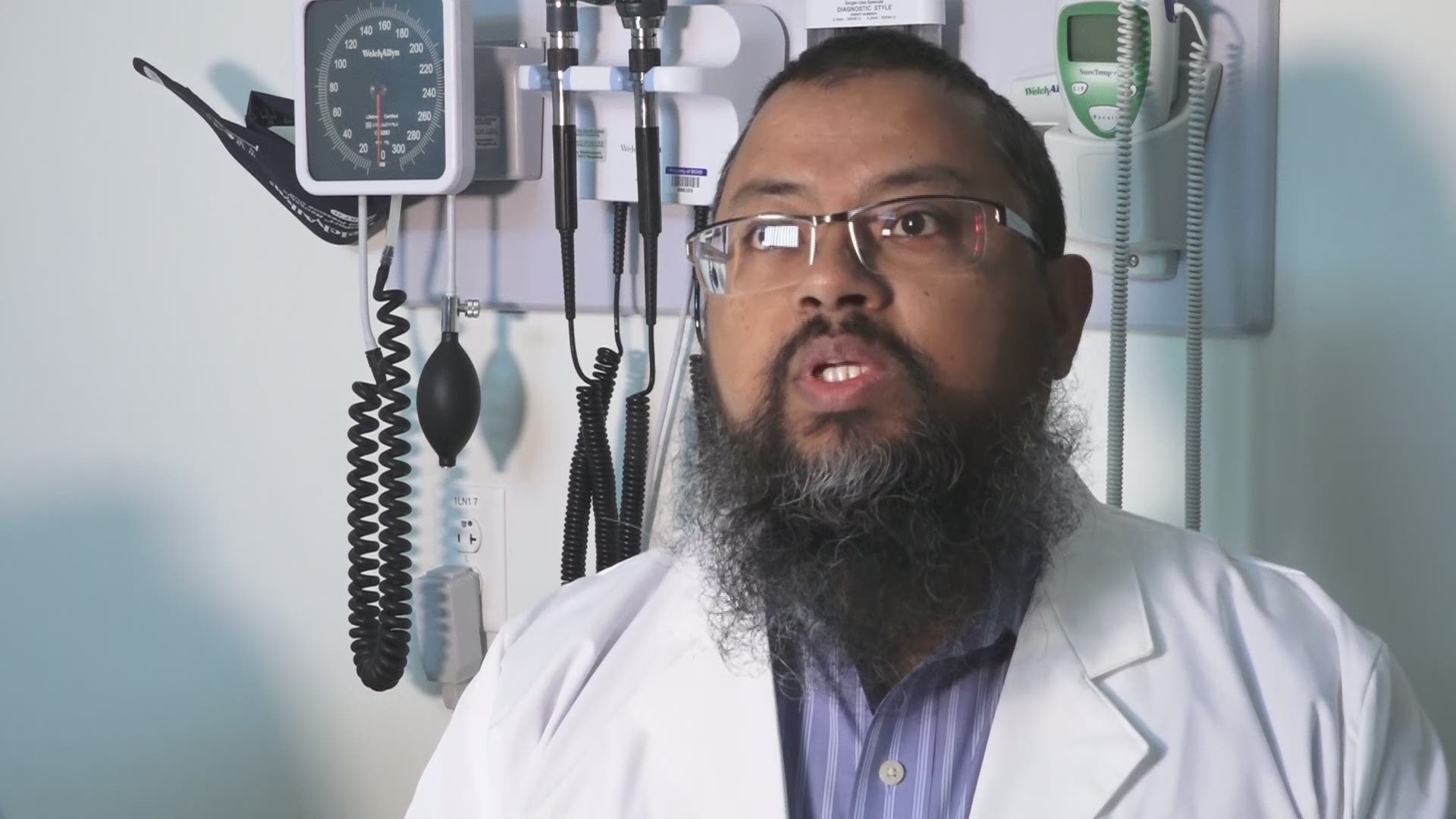SAN ANTONIO — Sleep. Everybody needs it, but a good chunk of us don't get enough. Or the quality of sleep makes us tired all day long.
"You have to make sleep your priority. Second, you have to make time for your sleep. It's not one day you're sleeping two hours and the next day you are sleeping 12," said Dr. Suhaib Haq, the Medical Director for the Dr. Robert L.M. Hilliard Center within the University Health System. He says close to half of his patients complain about sleep. Dr. Haq told us, "They say they have trouble falling asleep or staying asleep, and the second complaint we hear about is I snore and my spouse tells me I stopped breathing, please tell me what to do."
Stopping breathing is a sign of sleep apnea but snoring is sometimes a sign of that too. "We use a few signs and symptoms to see if a patient has sleep apnea. Those are of course snoring is one of them waking up tired feeling sleepy and dragging yourself during the day," said Dr. Haq.
So how much sleep is enough sleep? According to the CDC, infants up to 12 months should be getting 12 to 16 hours of sleep every 24 hours, including naps, Toddlers between one and two years 11-14 hours, pre-school kids between three and five years of age 10 to 13 hours of sleep a night, school-age kids from six to 12 years old need nine to 12 hours of sleep, teenagers eight to 10 hours a night, and adults over 18 at least 7 hours of sleep every night. Dr. Haq added, "Some people do good with six hours. Some people may not do good with six hours. Some people may not do good with eight hours because the sleep is disrupted or has poor quality."
Other health effects from lack of sleep include obesity, heart disease, diabetes, infertility, and overall shortening of life expectancy. But there are social aspects too. Dr. Haq said, "Daytime sleepiness, fatigue that can lead to accidents, poor memory, unable to concentrate well, unable to finish your work at school or at home."
So make sure you're getting enough sleep, and good sleep, so you won't have to see the doc and wear that gown.
For more information about family health call 210-358-3045. You can also find the rest of Wear The Gown stories, just go to KENS5.com/WearTheGown


